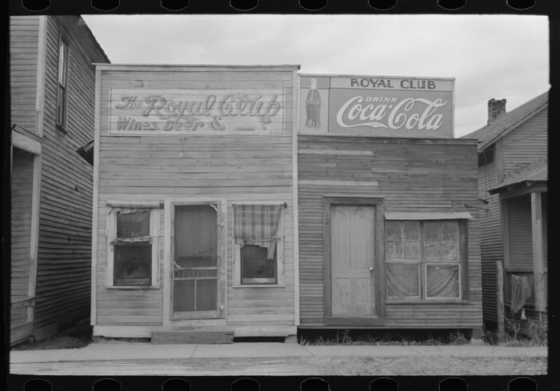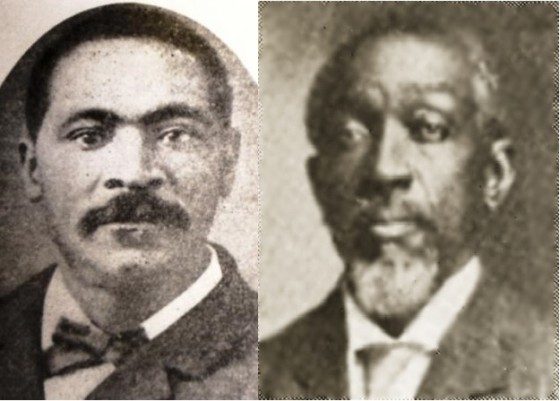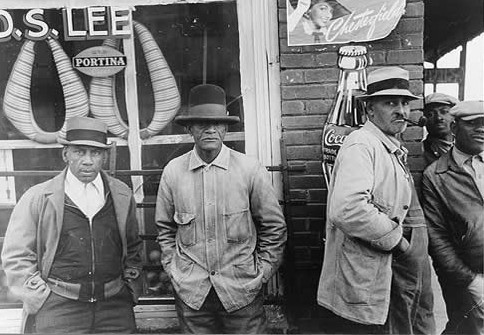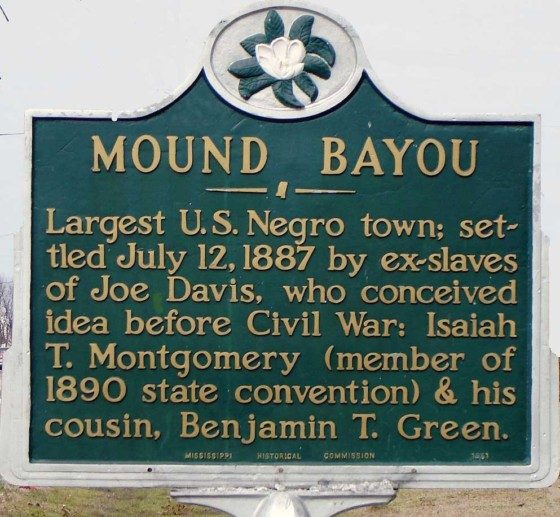Mound Bayou became infamous in the 1950s for the role it played in the Emmet Till Murder case, which turned out to be one of the most heinous crimes ever committed.
Civil rights legend, Dr T.R.M. Howard (1908-76), who had risen to wealth in the all-black town of Mound Bayou, Mississippi, would become involved in the Till affair. He turned his home into a “black command centre” for reporters, witnesses, and investigators searching for evidence.
Although the two men charged with Till’s murder were acquitted, Howard, a surgeon and entrepreneur, continued to speak out for civil rights. He would also open up a lot of businesses and firms in Mound Bayou, which still exists today as a predominantly black town in Mississippi despite its sharp population decline throughout the century.

Sited in the Yazoo Delta in Northwest Mississippi, Mound Bayou stands out from all the other towns due to its intriguing history. It was founded on July 12, 1887, the result of the dreams and efforts of former slaves and latter businessmen Isaac Montgomery and Benjamin Green.
The oldest municipality founded by ex-slaves in the United States with an all-black population, the idea for a town founded and filled with only black people was first put into action by Joseph Davis, a planter, on his plantation.
He started a town, Davis Bend, in the 1820s. Isaiah T. Montgomery and his cousin, Benjamin Green, founded Mound Bayou after they and the other residents were forced to abandon Davis Bend due to prolonged agricultural depression, falling cotton prices, flooding by the Mississippi River, and white hostility in the region.

They are said to have purchased 840 acres of land on which they initially settled for $7 per acre. They paid $420 upfront and spread the rest over 5 annual instalments.
The spot selected was named Mound Bayou because there was a “large Indian mound located at the convergence of two bayous which drained the territory,” according to BlackThen. However, the area was selected because of the Louisville, New Orleans, and Texas line railroad that ran right through the centre of the town
Mound Bayou became the largest African-American community in the nation. At a point in time, there were 6 churches, a train depot, 3 schools, about 40 businesses, 3 cotton gins, zoo, library, bank, and a hospital.
There was also a cottonseed oil mill where numerous blacks were employed. The town had a very low crime rate and had a newspaper, The Demonstrator, through which they promoted education as an essential path to community survival.

By 1911, the population of Mount Bayou had grown to 8,000 people, and had played hosts played host to notable historical figures, including Booker T. Washington, who visited frequently, and Theodore Roosevelt, who in 1907, spoke from the back of a train praising Mound Bayou.
In 1942, the Taborian Hospital opened to provide affordable healthcare for African Americans in the Mississippi Delta. Rolando Herts, of Delta State University, recently told NPR how the experience was at the time: “Just being able to walk through the front door of a hospital and immediately receive the care that you need. Not having to go through a back door. Not having to wait for the white patrons to get their needs serviced first. That happened here in Mound Bayou.”
Tragedy, however, struck the town in the 1940s when a fire destroyed a huge part of the business district of Mound Bayou. Despite this, the town continued to flourish.
Today, Mound Bayou, which is known as the “jewel of the Delta”, still exists as a predominantly black town in Mississippi in spite of the sharp population decline throughout the years.

The population is down below 1,500, a fraction of what it once was. More than half the children in Mound Bayou live below the poverty level, according to the NPR report. There is no industry in the town, and only a few stores and jobs remain, the report added.
Herts blamed the recent situation on desegregation.
“This is a case we’ve seen across the country in which black communities, people who had more options, left those communities to move to the suburbs, or to move to urban areas with more opportunities, and took their know-how and their resources with them.”

Montgomery and his co-founder, Benjamin Green, are buried in a small cemetery in town. Every year, people gather the graveside for Founders’ Day, with a memorial service and wreath-laying. Residents say it gives them the opportunity to reflect on the founding of what one described as a “big undertaking.”










